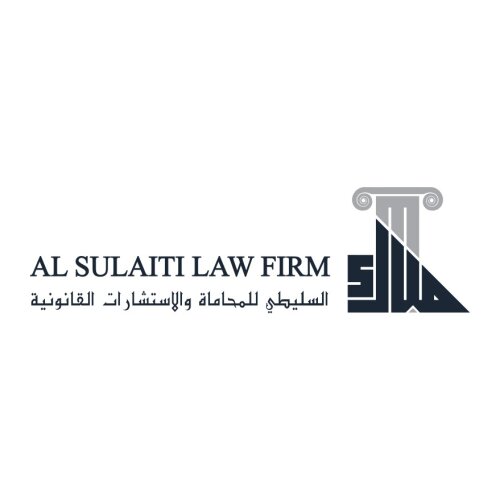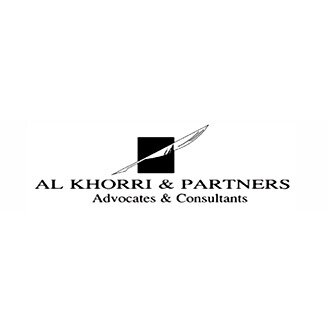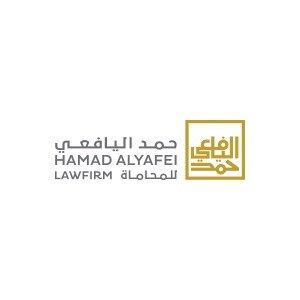Best Water Law Lawyers in Doha
Share your needs with us, get contacted by law firms.
Free. Takes 2 min.
List of the best lawyers in Doha, Qatar
About Water Law in Doha, Qatar
Water Law in Doha, Qatar, refers to the collection of legal rules and regulations governing the use, management, conservation, and protection of water resources within the city and the wider State of Qatar. As a nation situated in a predominantly arid region, Qatar places significant emphasis on the sustainable management of its limited water resources, including groundwater, desalinated water, and the reuse of treated wastewater. Water Law covers various areas such as drinking water supply, sanitation, agricultural water use, industrial applications, rights to water access, and environmental protection related to water resources.
Why You May Need a Lawyer
You may require the assistance of a legal professional specializing in Water Law in Doha for several reasons. Common situations include disputes over water rights or allocation for property developments, businesses, or agricultural use; navigating permits or licenses for borewells, desalination, or wastewater discharge; dealing with compliance issues regarding environmental regulations affecting water; or addressing concerns over contract terms related to the provision or consumption of water. Legal advice is also crucial in cases involving pollution, contamination, water tariffs, infrastructure projects, and government enforcement actions. An experienced Water Law lawyer can help you understand your rights and obligations, negotiate with authorities or other parties, and represent your interests in court if necessary.
Local Laws Overview
Doha's Water Law landscape is shaped by national legislation, government decrees, and ministerial regulations. Key legal frameworks include the Water Resources Law, Environmental Protection Law, and relevant cabinet decisions. These laws collectively:
- Regulate the extraction and use of groundwater and surface water, including licensing requirements
- Set standards for drinking water quality, supply, and distribution managed primarily by the Qatar General Electricity and Water Corporation (Kahramaa)
- Define water rights for residential, commercial, and agricultural sectors
- Outline penalties for violations, such as illegal drilling, water pollution, and overuse
- Mandate environmental impact assessments for projects affecting water supplies or aquatic habitats
- Encourage water conservation and the use of treated sewage effluent for certain types of irrigation
Understanding these laws and associated regulatory processes is essential for compliance and safeguarding your interests in any matter involving water resources in Doha.
Frequently Asked Questions
What government bodies regulate water in Doha, Qatar?
Regulation is primarily handled by the Ministry of Municipality and Environment (MME) and the Qatar General Electricity and Water Corporation (Kahramaa). Environmental protection aspects are overseen by the Department of Environmental Affairs.
Do I need a license to drill a well on my property?
Yes, all wells require prior approval and a license from the Ministry of Municipality and Environment, with strict limitations to protect groundwater resources.
Can businesses discharge wastewater into public systems?
Discharging wastewater requires a permit. There are strict environmental regulations and wastewater must meet quality standards before disposal or reuse.
Are there quotas or restrictions on water usage?
Certain sectors, such as agriculture and industry, may be subject to quotas or restrictions during shortages or to promote conservation. Residents are encouraged to use water efficiently.
What are the penalties for water contamination?
Penalties can include fines, suspension of activities, and potential criminal prosecution, especially if public health or the environment is significantly affected.
Who provides water for homes and businesses in Doha?
Kahramaa is the central authority responsible for water supply and distribution to residential and commercial properties.
Can recycled or treated wastewater be used for irrigation?
Yes, government initiatives promote the use of treated wastewater for landscaping and agricultural irrigation, subject to strict quality controls.
How are water disputes resolved?
Disputes can be addressed through negotiation, mediation, or by bringing the matter before the appropriate administrative or judicial bodies in Qatar.
Can foreign nationals own water rights?
Foreign individuals and entities may have restricted rights regarding water extraction or usage and should consult with legal professionals for specific cases.
What should I do if I discover illegal water usage on my property?
Report the matter to the authorities, such as the MME or Kahramaa, and consider seeking legal advice to protect your interests and ensure compliance with the law.
Additional Resources
If you are seeking more information or assistance regarding Water Law in Doha, you can consult the following resources:
- Qatar General Electricity and Water Corporation (Kahramaa) - for supply, connection, and quality standards
- Ministry of Municipality and Environment (MME) - for regulations, permits, and environmental compliance
- Department of Environmental Affairs - for pollution and conservation measures
- Qatari Bar Association - for referrals to legal experts in Water Law
- Legal aid clinics at local universities for initial consultations
Next Steps
If you need legal assistance related to Water Law in Doha, start by gathering all relevant documents and information concerning your matter, such as permits, contracts, or complaints. Identify whether your issue involves regulatory compliance, land use, environmental protection, or dispute resolution. Seek out a qualified lawyer with experience in Water Law or consult local legal aid resources for advice. Communicate clearly about your goals and concerns, and follow your lawyer's guidance on interacting with authorities or other stakeholders. Staying informed and proactive is key to successfully navigating Water Law matters in Doha, Qatar.
Lawzana helps you find the best lawyers and law firms in Doha through a curated and pre-screened list of qualified legal professionals. Our platform offers rankings and detailed profiles of attorneys and law firms, allowing you to compare based on practice areas, including Water Law, experience, and client feedback.
Each profile includes a description of the firm's areas of practice, client reviews, team members and partners, year of establishment, spoken languages, office locations, contact information, social media presence, and any published articles or resources. Most firms on our platform speak English and are experienced in both local and international legal matters.
Get a quote from top-rated law firms in Doha, Qatar — quickly, securely, and without unnecessary hassle.
Disclaimer:
The information provided on this page is for general informational purposes only and does not constitute legal advice. While we strive to ensure the accuracy and relevance of the content, legal information may change over time, and interpretations of the law can vary. You should always consult with a qualified legal professional for advice specific to your situation.
We disclaim all liability for actions taken or not taken based on the content of this page. If you believe any information is incorrect or outdated, please contact us, and we will review and update it where appropriate.
















